#PowerShift Project by Oxfam Great Britain
with OXFAM Great Britain
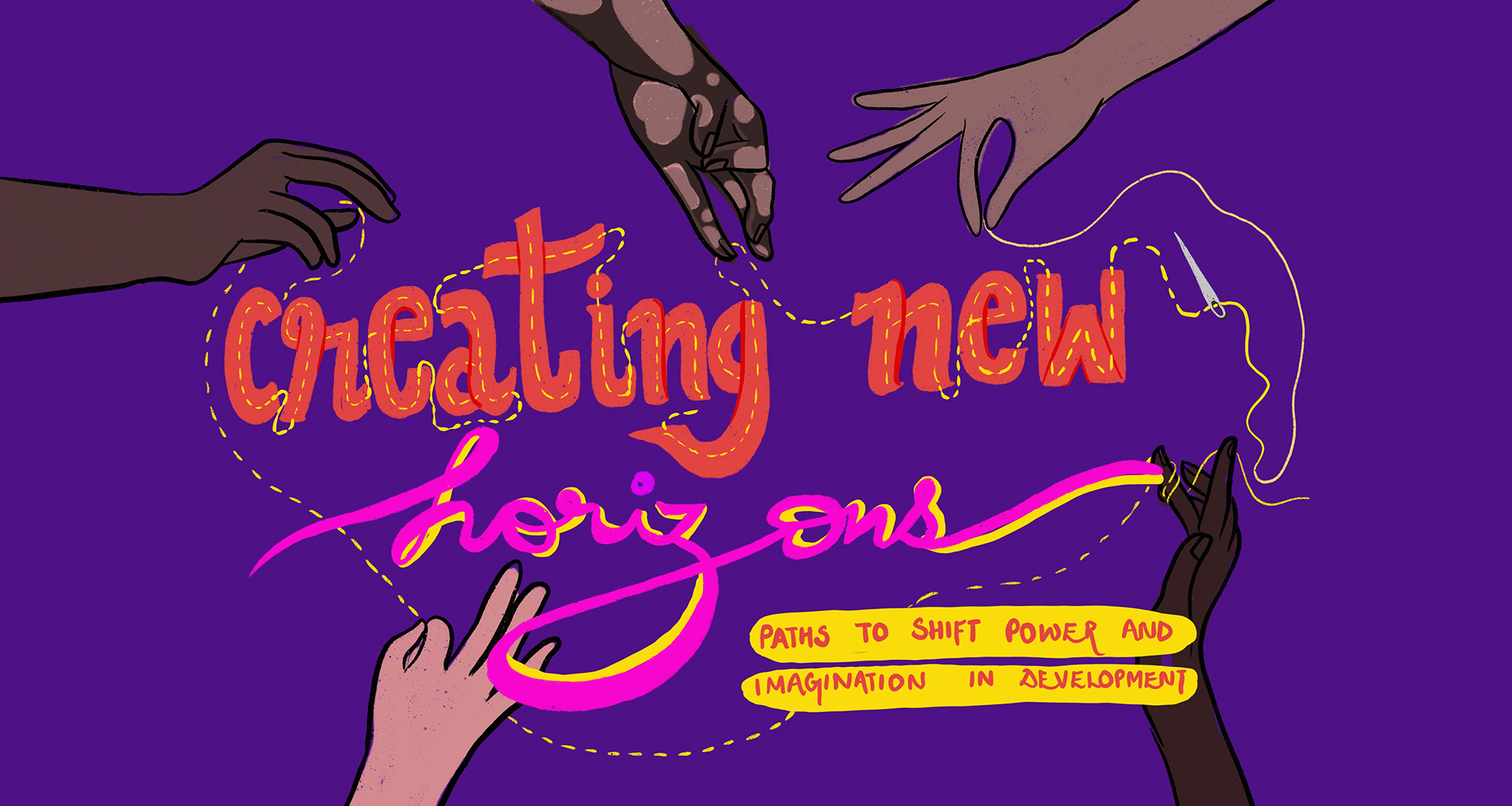
Client
OXFAM
Relationship
Since 2022
Services
Digitial storytelling, Illustration, Art Direction
Reimagining power and It’s place in global aid
Sparking imagination and challenging traditional approaches to power dynamics in global aid.
Dreaming up an all new world
Changing power requires us to see the world differently. As a final burst of energy to round up the lessons, insights and guiding lights from two years of the Power Shifts project, the team of OXFAM and we set out to co-create a virtual gallery for shifting power—creative ways to communicate ideas and transformative practices.
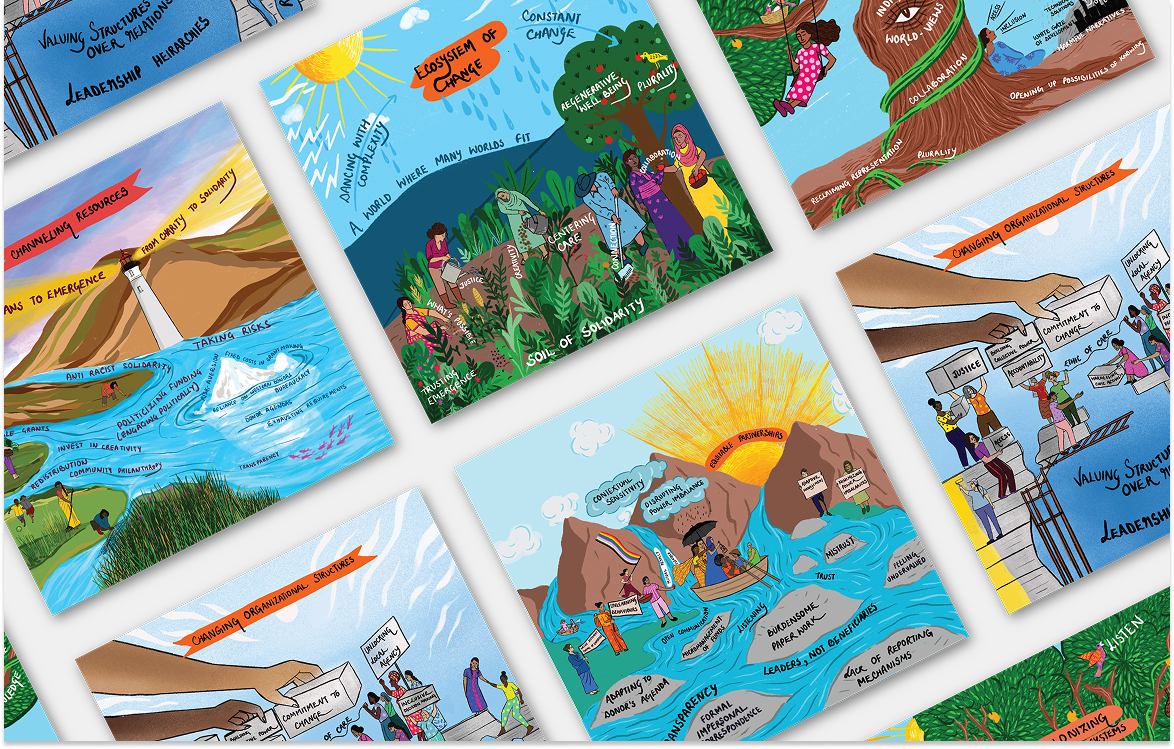
What Do New Horizons Look Like in Development?
‘Creating new horizons: paths to shift power and imagination in development, displays a visual representation of some of the biggest debates surrounding ‘shifting the power’ in the development and aid sector. It explored symbolic representations of each debate, hoping to visualize information using metaphors that many can connect to. Rather than attempting to be exhaustive and capture every detail of a debate, these graphic records offer a window to think, see and feel the possibilities of radically better ways of working.
Each metaphor – a journey, a garden or a confluence of streams – visually explores five conversations around shifting power within the sector.
Below are the five debates we focused on, which overlap and necessarily impact one another. All are vastly rich ecosystems of thought and practice, and each merits an entire series of images. The images can hopefully serve as a resource for fellow sector colleagues and inspire our power-shifting journeys.
Growing Forests of Knowledge
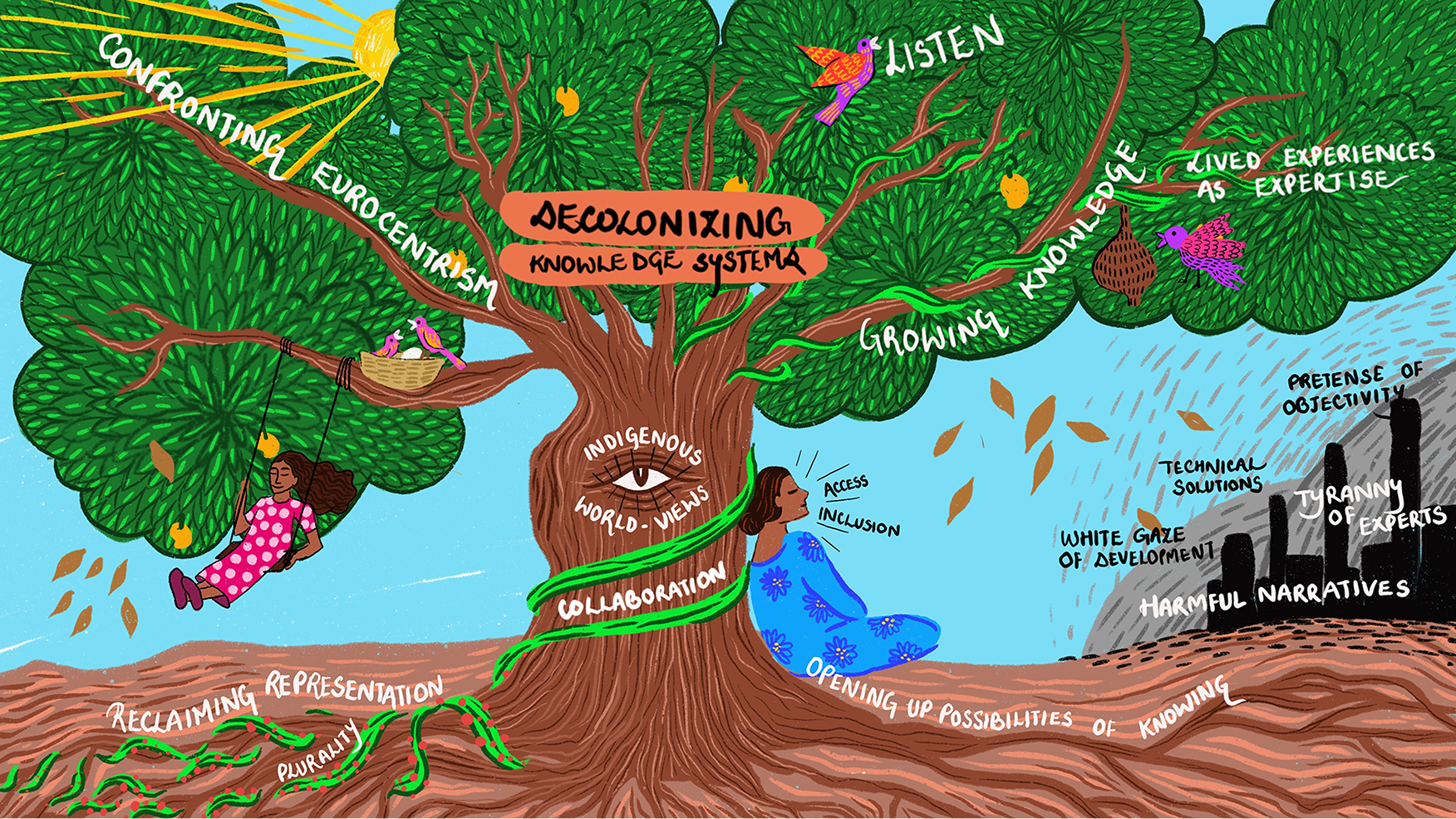
The process of shifting power starts by questioning whose knowledge counts. This image invokes opening up the possibilities of knowing, which involves valuing, accessing and communicating a plurality of knowledge. Some of the main blockages to these shifts are represented by the toxic fumes on the far right.
Many of these are encapsulated in the White Gaze of development. Knowledge production systems inevitably involve making information accessible to all. But ultimately, as this image illustrates, the horizon is to move towards growing knowledge collaboratively, cultivating it in processes of mutual learning and cross-pollinating abundant knowledge to strengthen local actions.
Bridging Gaps to Shake Up Our Organizational Cultures
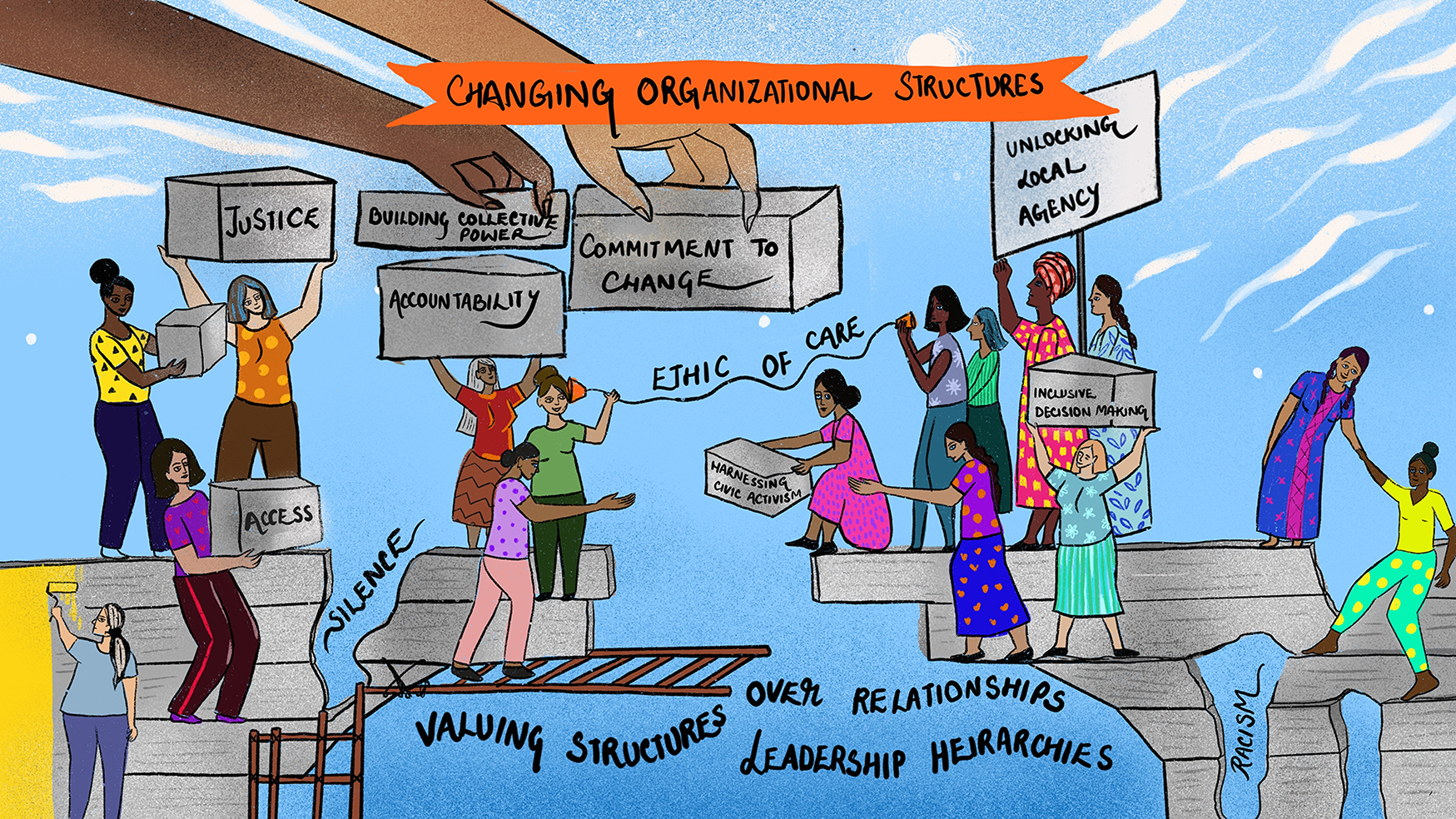
Redefining development also requires shaking up our working cultures to build collective power rather than hierarchical structures, commit to anti-racism and feminist leadership, and centre care in our organizations.
These bold transformations require a reckoning with historical trajectories that feed into our work, especially legacies of colonialism that manifest in the systemic racism underlying thought and practice in the sector. They demand combatting the silences surrounding these legacies and recognizing how they shape present-day cultures and practices.
The Journey of Establishing Equitable Partnerships
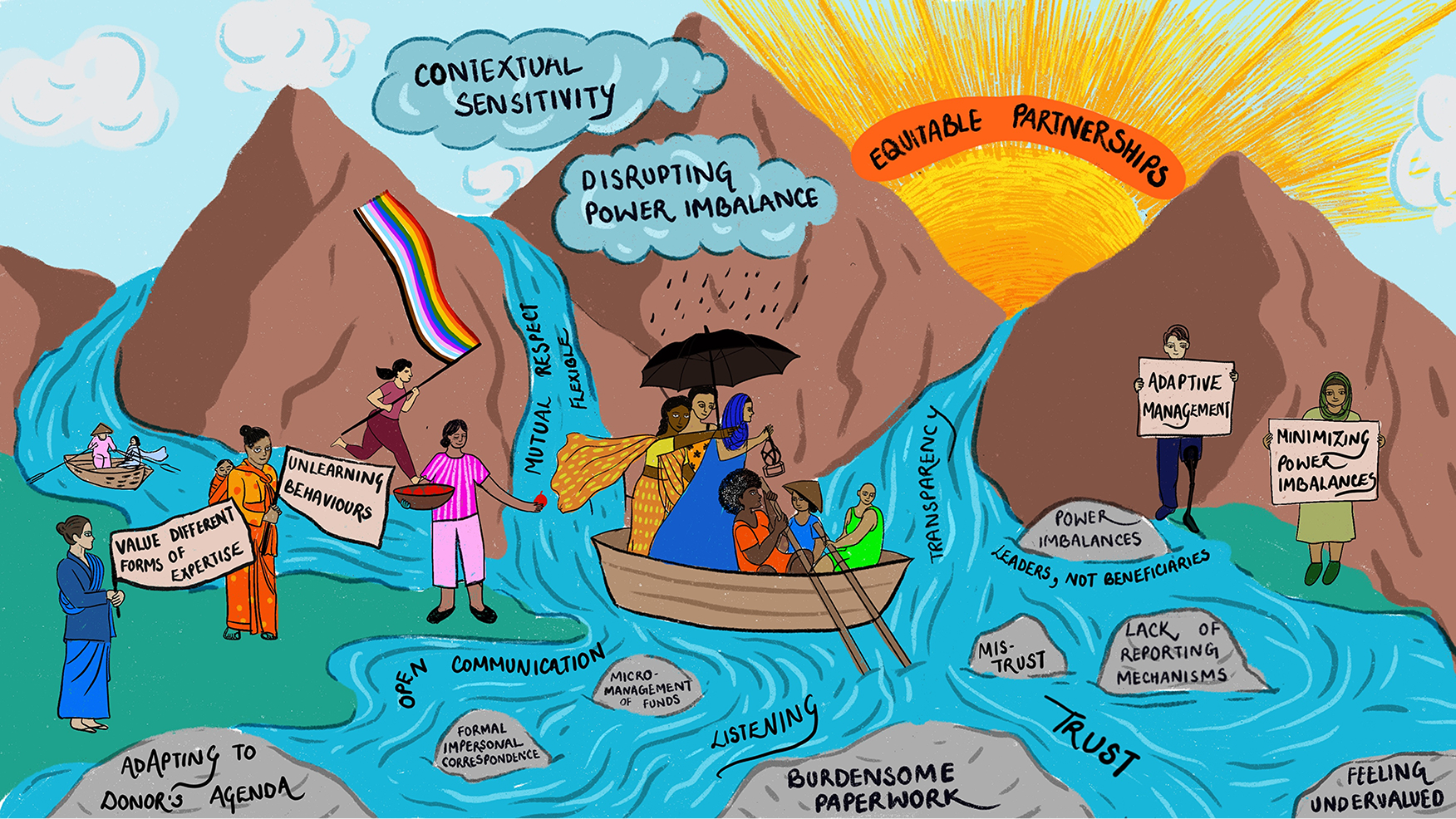
With social movements, local collectives and young people as protagonists of systemic change, understanding how to equitably partner with and enhance the power of their leadership is a priority.
Establishing horizontal collaborations goes beyond improving interactions: it requires a radical rethink of how international organisations operate. Some important obstacles that many have identified are represented in some of the rocks that obstruct the flow of the water in the image. On the shorelines, diverse people hold up placards, which represent signposts to guide this journey.
Redirecting The Flow and Destination of Resources
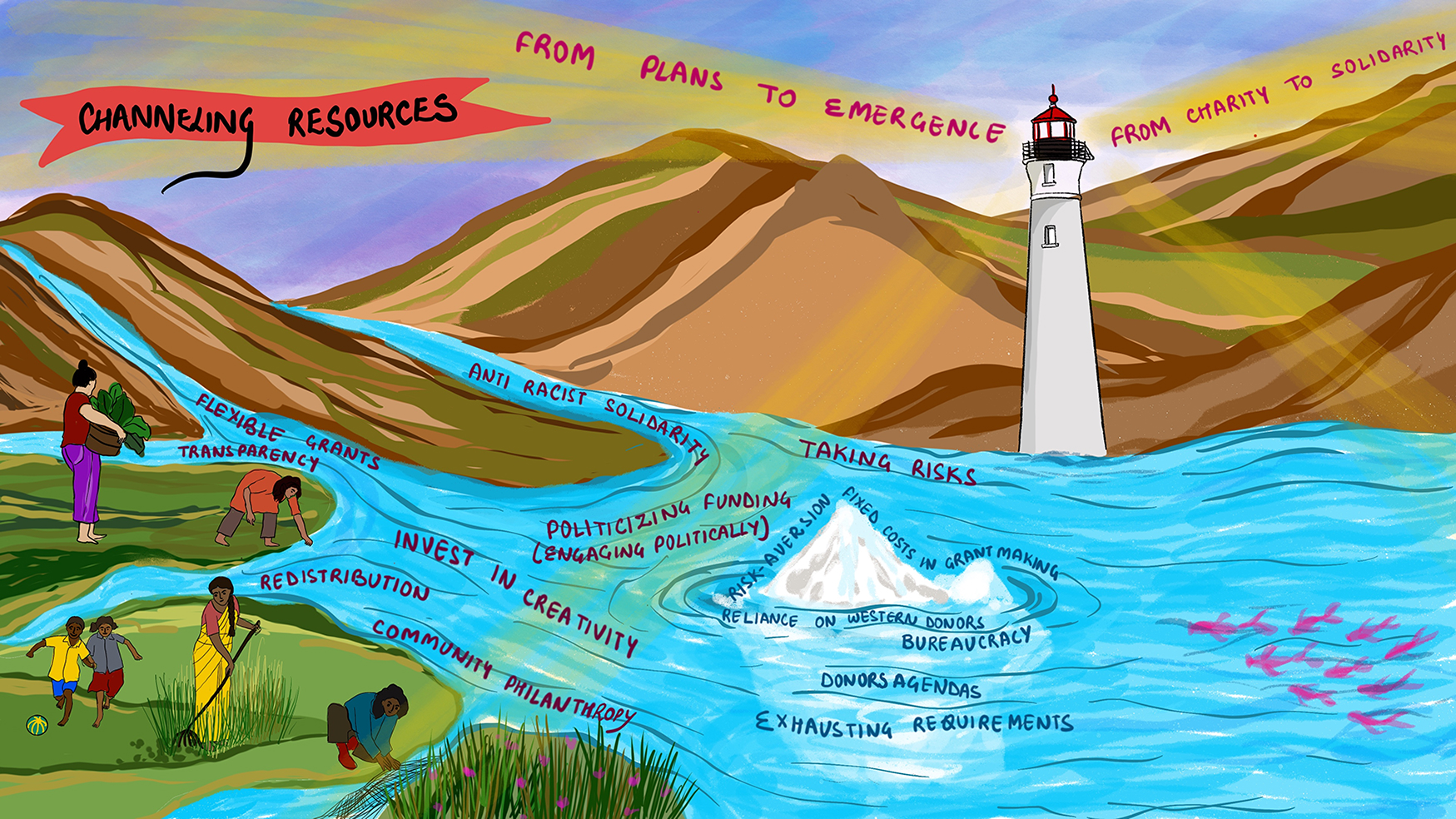
Power shifts are inconceivable without a redistribution of resources. Yet redistributing resources is not simply a case of changing who the money goes to, but how resources flow. New approaches, such as community philanthropy, are showing how funds can flow more flexibly, transparently, and effectively in communities.
There are tightropes to be balanced with safeguarding and legal requirements, but shifting the lenses through which we see the flow of resources and funding can help us move from charity to solidarity, from plans to emergence.
Valuing Ecosystems Of Change
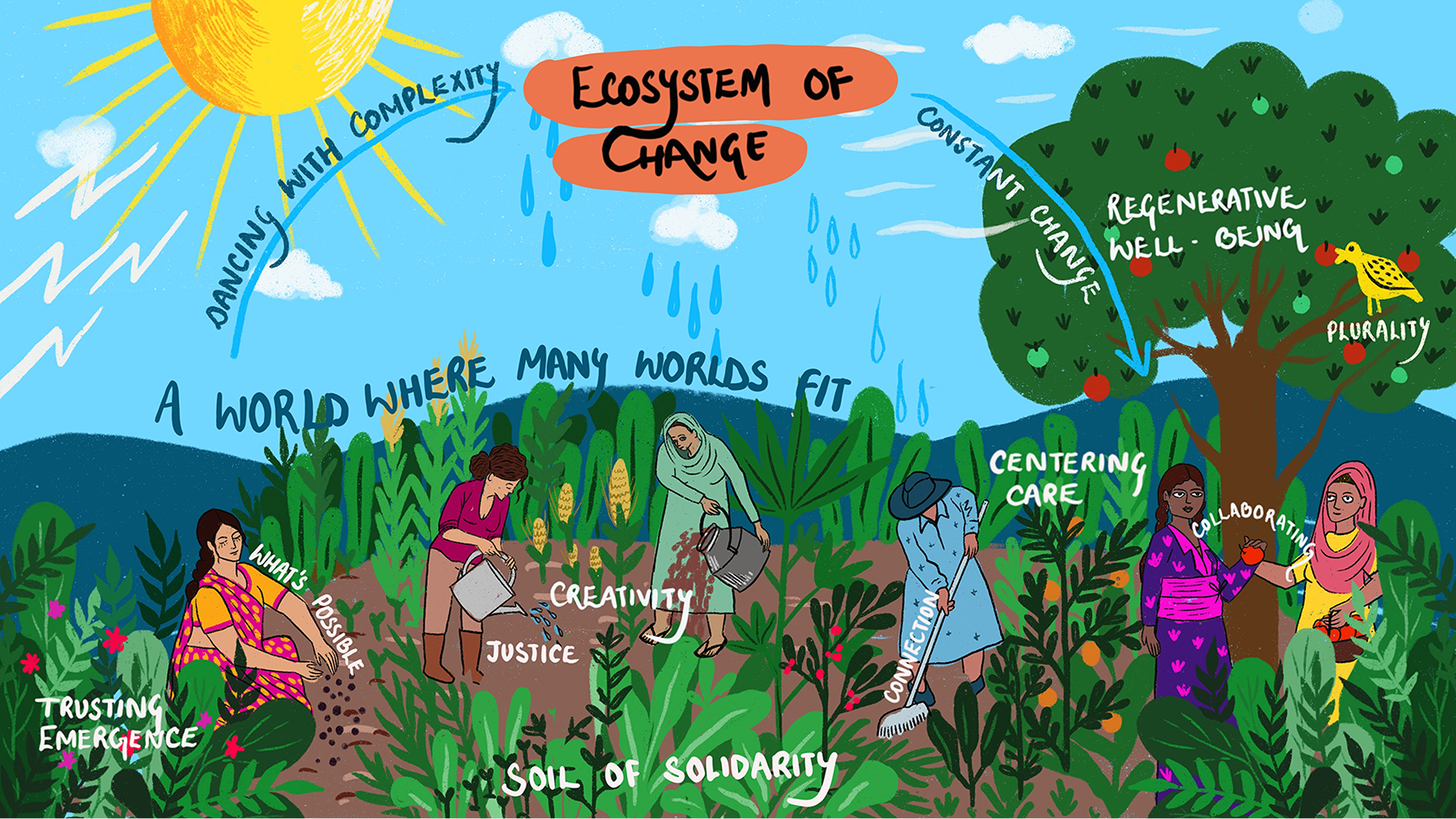
The social justice sector can only grapple with the compound crises of our time by being as sophisticated as the systems we’re trying to shake up. This approach invites us to think in systems and work at the intersections, where social issues collide and interact.
As the image shows, a systems approach is abundantly fertile; when we dance with complexity and admit that what surrounds us is a deeply intricate and constantly evolving pluriverse, we can sow seeds of immense possibility, creativity, and regeneration.